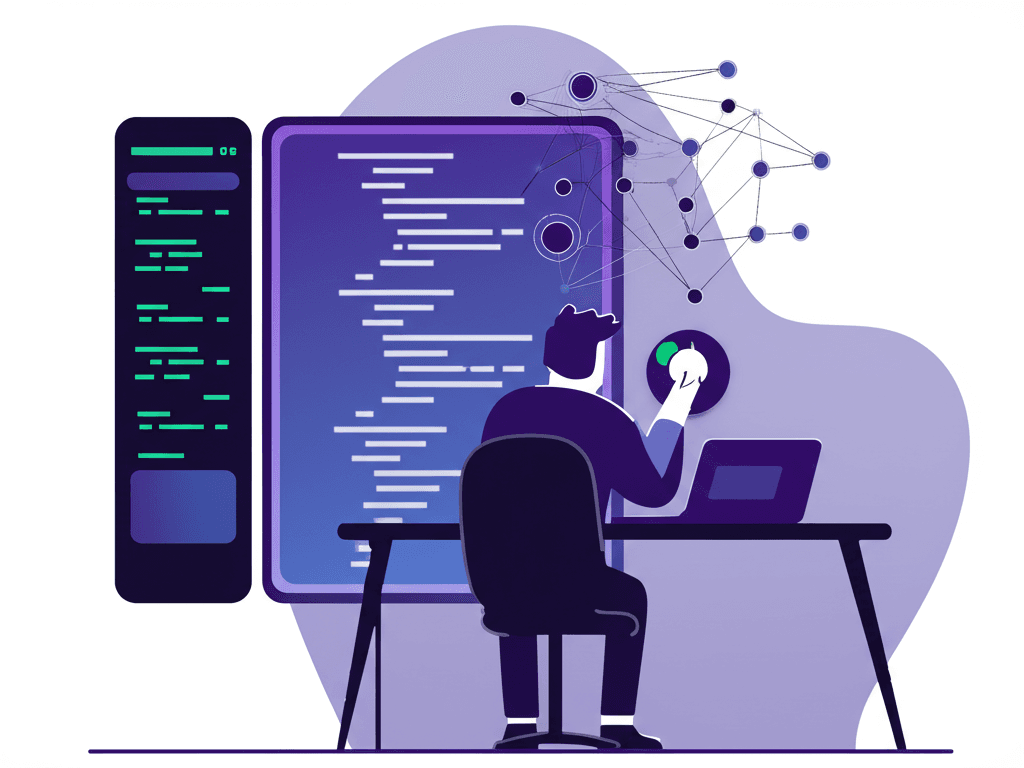AI-Powered Zed Editor Now Lets Developers Completely Disable AI.
Zed's editor adds AI opt-out, empowering developers with choice and control amidst a growing debate on AI integration.
July 24, 2025

In a significant move that underscores a growing debate within the software development community, the open-source code editor Zed has introduced an option for users to completely disable its integrated artificial intelligence features. This decision by Zed Industries, the company behind the high-performance, Rust-based editor, responds directly to a segment of its user base that has expressed a desire for a more traditional, non-AI-assisted coding environment. The introduction of this opt-out feature highlights a pivotal moment in the evolution of development tools, where the push for AI integration is being met with a counter-demand for user choice and control.
The new functionality allows developers to add a single line to a configuration file, `{"disable_ai": true}`, to turn off all AI capabilities within the editor.[1][2] This change, which is being rolled out in preview builds and will soon be available in the stable release, will also be presented as a simple switch for new users during the onboarding process.[3] The move comes after more than a year of requests from users on platforms like GitHub, who cited a range of reasons for wanting to work without AI assistance.[2] Zed's developers have acknowledged these concerns as valid engineering decisions, emphasizing their commitment to respecting user intent and providing a tool that adapts to individual workflows.[4] This development is particularly noteworthy given that Zed has actively promoted itself as a "blazing fast editor built from the ground up in Rust" with a strong focus on AI, positioning itself as a next-generation tool for modern developers.[5]
The rationale behind offering an AI-free experience is multifaceted, reflecting a spectrum of developer concerns.[4] For some, the objections are philosophical, rooted in concerns about the ethics of training data, the environmental impact of large language models, or a preference for the predictability and direct control of traditional coding without AI-generated suggestions.[4] Others are bound by organizational or legal constraints; many companies, particularly those dealing with proprietary code, restrict or outright ban the use of third-party AI tools to protect intellectual property and ensure security.[3] In some cases, organizations have approved specific AI vendors that are not yet integrated into Zed, making the built-in features unusable for their employees.[4] By providing an opt-out, Zed caters to these professional requirements and individual preferences, ensuring that developers are not forced into a workflow that conflicts with their principles or their employer's policies.
Beyond a complete opt-out, Zed also offers more nuanced solutions for developers whose primary concern is data privacy.[4] The editor allows users to connect to trusted AI providers using their own API keys, giving them direct control over their data and the vendor relationship.[2] Furthermore, Zed supports the use of local AI models, which ensures that a developer's code never leaves their machine, addressing a critical security concern for many.[4] When using Zed's own AI service, which leverages models like Anthropic's Claude 3.5 Sonnet, the company maintains a zero-retention policy, meaning code and prompts are discarded after each request and are never used for training purposes.[4][6] This multi-pronged approach demonstrates a sophisticated understanding of the developer community's varied relationship with AI, acknowledging that the concerns are not monolithic and require flexible solutions.
The decision by Zed to provide a clear path for disabling AI is a significant marker in the broader landscape of software development. As AI tools become increasingly integrated into the daily workflows of programmers, questions about their actual effectiveness and desirability are coming to the forefront. Recent studies have even challenged the assumption that AI always leads to increased productivity, with one finding that experienced developers took longer to complete tasks with AI assistance, highlighting a potential "perception gap" between believed and actual efficiency.[7] While the majority of developers are using or planning to use AI tools, concerns about misinformation and source attribution remain high.[8] Zed's move to empower users with a choice reflects a mature approach to product development in the AI era, recognizing that the most powerful tool is one that adapts to its user, not the other way around. By making the editor open-source and now offering an AI-free path, Zed reinforces its commitment to user control and solidifies its position as a serious contender in a competitive field, appealing to both AI enthusiasts and skeptics alike.[4][3]